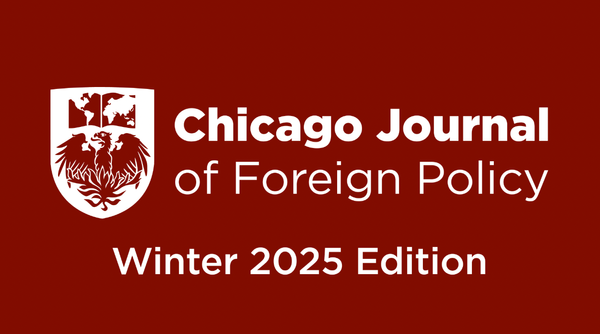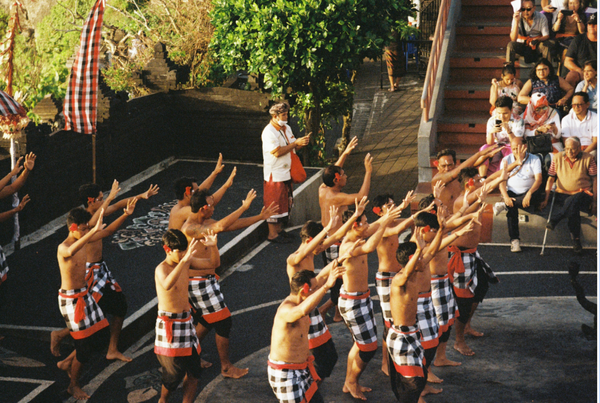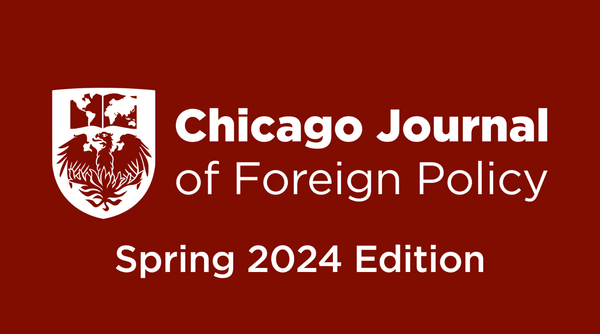The Forgotten Islands – Imperialism and its Modern Legacy in the Pacific

By Shikhar Sehgal, University of Chicago
"Oceania is vast, Oceania is expanding. Oceania is hospitable and generous, Oceania is humanity rising from the depths of brine and regions of fire deeper still, Oceania is us. We are the sea, we are the ocean, we must wake up to this ancient truth and together use it to overturn all hegemonic views that ultimately aim to confine us again, physically and psychologically, in the tiny spaces that we have resisted accepting as our sole appointed places and from which we have recently liberated ourselves. We must not allow anyone to belittle us again, and take away our freedom."
– Epeli Hau’ofa, Tongan-Fijian philosopher[1]
Spanning a vast expanse of quiet ocean, the Pacific Islands often go unnoticed in our global discourse. Yet, their histories are deeply intertwined with the legacies of colonialism and imperialism. From European colonial endeavours to Japan's territorial ambitions, these islands have played a role in global power dynamics. Though often lost in the mix of international competition, zooming in reveals that the disruptions caused by colonialism have left enduring impacts on their traditional lifestyles, economies, and health systems.
In recent years, the Pacific has emerged as an important arena for geopolitical competition, particularly between the United States and China. The evolving relationships between Pacific nations and global powers present both opportunities and challenges, especially for the United States. An examination of the Pacific Islands' colonial history and their current strategic significance demonstrates the relationship between imperial legacies and contemporary foreign policy.
The settlement of the Pacific Islands began over 3,000 years ago with navigators from Southeast Asia. These early settlers established distinct cultural regions: Micronesia, Polynesia, and Melanesia. Pre-colonial societies were characterized by self-sufficiency, relying on fishing, agriculture, and bartering. Social structures were rooted in kinship and communal bonds, with diets rich in local staples such as fish, taro, breadfruit, and coconuts. This nutrient-dense diet, combined with active lifestyles, contributed to the robust health of island populations. However, as Hau’ofa reminds us, "The people of the Pacific were not passive subjects of history but active agents in shaping their own lives," underscoring the resilience and agency that defined pre-colonial life.[2]
The arrival of European explorers in the 18th century marked the beginning of significant changes. Colonial powers, including Spain, Britain, France, Germany, and the United States, imposed new economic and political systems. Traditional practices and governance structures were often displaced as Japan's influence became notably prominent after World War I, particularly in Micronesia. During World War II, the Pacific became a battleground, leading to the devastation of local populations, economies, and environments. Post-war, many islands remained under foreign administration, with the United States gaining control of territories like Guam and the Northern Mariana Islands.[3]
The colonial legacy has had profound economic and social consequences. The introduction of cash crops such as sugar and copra shifted economies from self-sufficiency to dependence on global trade networks. Traditional diets were replaced by imported processed foods, high in sugar and refined carbohydrates.
These dietary changes, coupled with reduced physical activity, have contributed to some of the world's highest rates of diabetes and other metabolic disorders in Micronesia, Polynesia, and Melanesia.[4] Limited healthcare infrastructure, a direct consequence of colonial neglect, exacerbates these health crises.
Politically, many Pacific nations have struggled to assert their sovereignty in the post-colonial era. While some territories gained independence, others, such as Guam and American Samoa, remain under foreign administration. The geopolitical significance of the Pacific has made it a focal point for competition among global powers. In recent years, China has emerged as a dominant player in the region, investing heavily in infrastructure projects and offering loans to Pacific nations. These efforts are part of China's broader Belt and Road Initiative, which aims to expand its influence across Asia, Africa, and the Pacific. For Pacific nations, Chinese investment offers much-needed economic development. However, it also raises concerns about debt dependency and the erosion of local sovereignty.
The growing presence of China in the Pacific poses both challenges and opportunities for the United States. Historically, the U.S. has viewed the Pacific as a strategic buffer zone, particularly during World War II and the Cold War. Today, the region's importance lies in its proximity to global trade routes and its potential as a theatre for great power competition. The U.S. has sought to counter China's influence by strengthening its alliances with Pacific nations and increasing economic and military aid. Initiatives such as the Blue Pacific Partnership, launched by the U.S., Australia, New Zealand, and Japan, aim to promote regional security and sustainable development.[5] However, the U.S. must navigate these relationships carefully to avoid being perceived as a neocolonial power.
In addition to geopolitical tensions, Pacific nations are grappling with existential threats such as climate change. Rising sea levels and extreme weather events disproportionately affect low-lying islands, threatening their populations and economies. International organizations, including the United Nations, have recognized the unique vulnerabilities of Pacific nations, advocating for increased climate financing and adaptation measures.[6] However, global responses have been slow, leaving many islands to fend for themselves.
"We need support as well to build infrastructure to withstand the intensifying effects of rising sea levels, extreme weather and the shifting dynamics of the ocean. I go further and call for a special fund dedicated to assisting our Island nations. It would enable us to act swiftly to adjust to and protect against the creeping climate menace. Early warning systems must be set up along with evacuation plans and community adaptation training. This crisis relentlessly eats away at our shores and coastal areas. Six Fijian villages have already been relocated. Forty-two are earmarked to be removed in the next five to ten years.” said Fijian Prime Minister Sitiveni Rabuka at the 2023 Climate Summit.[7]
The Pacific Islands have also played an active role in shaping international policy. Regional organizations such as the Pacific Islands Forum have provided a platform for collective action on issues ranging from climate change to sustainable development. Pacific nations have leveraged their strategic location and resources to assert their interests in global forums. For instance, they have successfully advocated for the protection of marine biodiversity through initiatives such as the Pacific Oceanscape.[8]
The relationship between Pacific nations and global powers underscores the complexities of modern imperialism. While external investments and partnerships offer opportunities for
economic growth, they often come with strings attached. The Pacific Islands must balance their relationships with competing powers, ensuring that their sovereignty and long-term interests are not compromised. For the United States, engaging with the Pacific requires an approach that acknowledges the region's colonial history and prioritizes genuine partnership over strategic competition with world powers like China, India, and Russia (this does not imply that the US should forget to compete). The U.S., in this new regime, will likely be focusing on domestic policy, but simple actions can be taken by assisting the islands with climate change and related problems through public vocalism, financial support, technical assistance, and assistance in cultural and heritage protection.
The Pacific Islands' history of colonialism and imperialism has left a profound imprint on their societies, economies, and environments. From the disruption of traditional lifestyles to the health crises that plague the region today, the legacies of colonialism are evident. At the same time, the Pacific's geopolitical significance has made it a focal point for contemporary power struggles, particularly between the U.S. and China. As Pacific nations navigate these challenges, they are asserting their agency through regional cooperation and international advocacy. The future of the Pacific will depend on the ability of its nations to harness their collective strength while navigating the complexities of global power dynamics. For the United States, fostering a genuine partnership with the Pacific Islands offers an opportunity to support the region's resilience while advancing shared values of sovereignty and sustainability.
[1] Hauʻofa, Epeli. Our Sea of Islands. Suva: University of the South Pacific Press, 1993.
[2] Ibid.
[3] Pacific Islands Development Program. "Economic Challenges in the Pacific Post-War." Honolulu: East-West Center, 2022.
[4] World Health Organization. "Noncommunicable Diseases in the Pacific: A Silent Epidemic." Geneva, 2019.
[5] Pacific Islands Development Program. "Economic Challenges in the Pacific Post-War." Honolulu: East-West Center, 2022.
[6] UNFCCC. "Pacific Leaders Call for Urgent Climate Action." Bonn: UN Climate Secretariat, 2022.
[7] Fijian Prime Minister Sitiveni Rabuka's speech at the 2023 Climate Summit (as reported by the Department of Foreign Affairs of Fiji).
[8] UNESCO. "Pacific Oceanscape: A Model for Biodiversity Protection." Paris: UNESCO, 2021.





